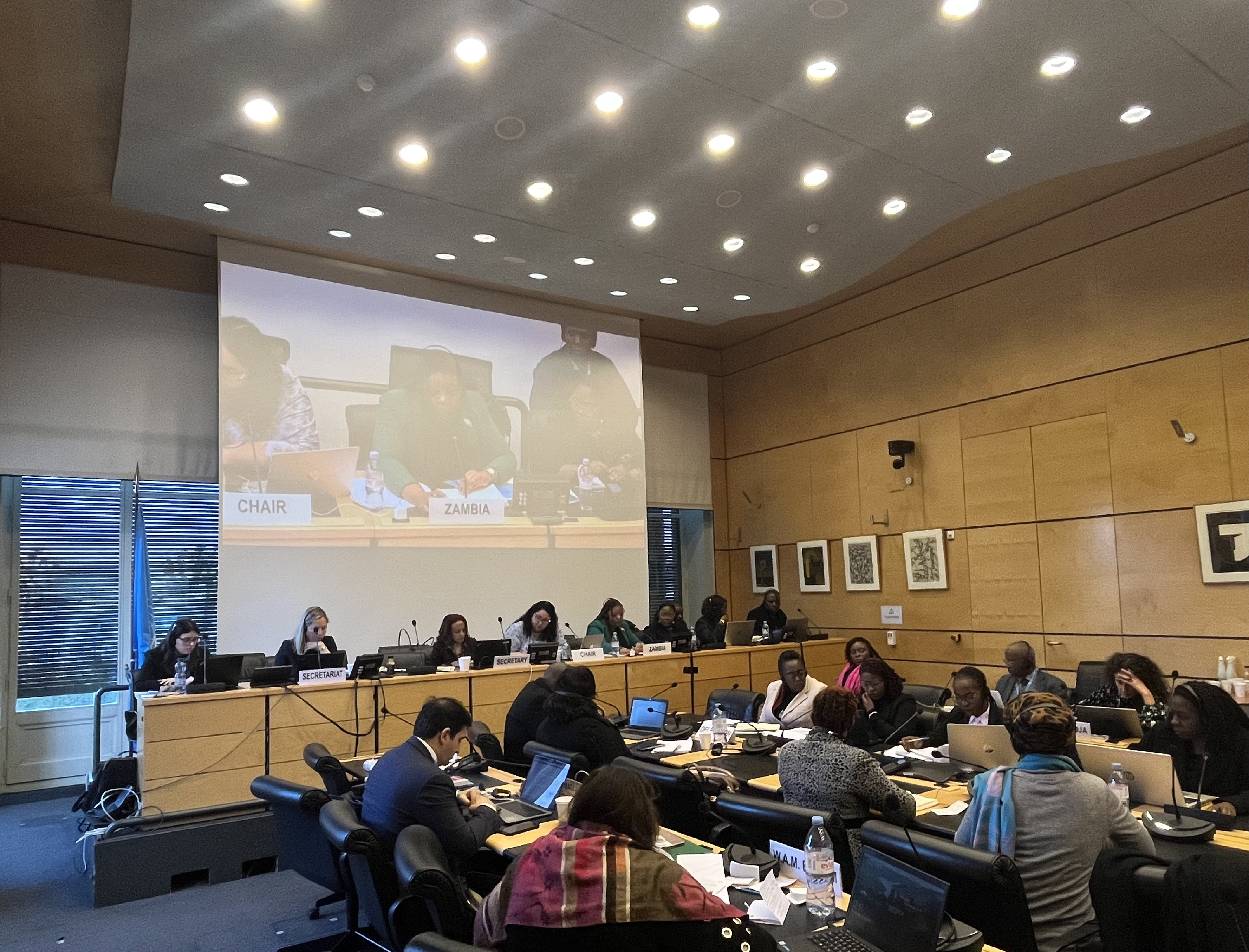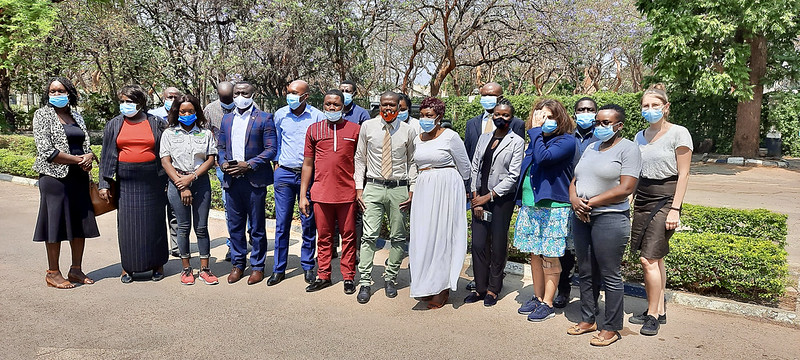Zambia four months in: intentions to get a grade A when follow-up will be evaluated
Published on 07 Aug 2023, 02:20 PM
Zambia was reviewed by the UN Human Rights Committee in March 2023
.jpeg) About 200 students from the law faculty at Zambia University listen to Vasilka Sancin as she stresses the importance of the involvement of students at the international level
About 200 students from the law faculty at Zambia University listen to Vasilka Sancin as she stresses the importance of the involvement of students at the international level
From 17 to 21 July 2023, the Centre organized a follow-up visit to Lusaka, Zambia. Vasilka Sancin, former vice-Chair of the UN Human Rights Committee, spoke with several stakeholders about the recommendations adopted by the Committee and the follow-up procedure. The Zambia Council for Social Development (ZCSD), a civil society organization, supported the Centre in the practical organization of the visit.
Context
Zambia was reviewed by the Committee in March 2023, and it received a range of recommendations on civil and political rights. Three of those recommendations were selected for the follow-up procedure, because of their importance and urgency: the full prohibition of the death penalty, the prohibition of torture and ill-treatment and lastly, violence against women. This includes investigations, reparations, the encouraging of reporting, resources and training for those handling cases and awareness—raising for society as a whole.
The Centre has been working with Zambian partners for several years since before the review. In January, the Centre organized a workshop for civil society to support them in the preparations of their alternative report. Several civil society representatives took part in the hybrid briefings with the Committee members. This visit was a continuation of that collaboration.
Program of the visit
During the visit, the delegation met up with a range of stakeholders that were relevant to the priority recommendations. The Minister of Justice and his Permanent Secretary were important interlocutors, as they are working on both the abolition of the death penalty and the prohibition of torture.
Secondly, a consultation was organized with civil society, during which Vasilka Sancin presented the recommendations and gave background information about the follow-up procedure, in which civil society has an important role to play. Other meetings included one with the National Human Rights Institution, the Parliamentary Budget Office and a member of Parliament. A meeting with the gender division was unable to fit into the agenda, but an online meeting will be held in the coming weeks.
Vasilka was also able to spread the word about the recommendations and the follow-up procedures. She was invited in two TV-studios and also had one radio interview, in which she explained which steps Zambia is recommended to take by 2026. Moreover, she held a lecture at the Zambia University law faculty and shared information with about 200 law students about the Human Rights Committee. The Centre stressed that students, even if not a member of an officially registered organization, can submit information to the UN Treaty Bodies.
Evaluation and next steps
The Centre had the opportunity to speak with all stakeholders about Zambia’s current challenges: Government, Parliament, civil society, media, the NHRI and students. From those meetings, it became clear that Zambia is willing to move forward. A draft anti-torture bill is under consultation, and there are plans to amend the Defense Act so that the death penalty will also be abolished for military crimes. The Minister of Justice assured the Centre that it wants to ratify the Optional Protocol to the ICCPR and aims for the highest possible grade during the follow-up evaluation by the Committee.
However, challenges remain, and those are more often than not related to (a lack of) finances. The third and final priority recommendation on violence against women is more complicated than adopting new legislation, because it requires a significant budget to organize awareness-raising campaigns, to provide trainings for law enforcement officials, judges, prosecutors, lawyers and anyone else involved in the handling of cases, prompt investigations and reparations to victims. Nevertheless, the Zambian authorities seemed willing to walk the talk and work with UN bodies and civil society to fulfil their obligations.
The Zambian authorities now have three years to submit their follow-up report. In this report, for which the deadline is March 2026, they will need to explain how they have implemented these priority recommendations. Civil society will be able to submit their own report on the improvements made.
.jpeg) About 200 students from the law faculty at Zambia University listen to Vasilka Sancin as she stresses the importance of the involvement of students at the international level
About 200 students from the law faculty at Zambia University listen to Vasilka Sancin as she stresses the importance of the involvement of students at the international level


.jpg)

